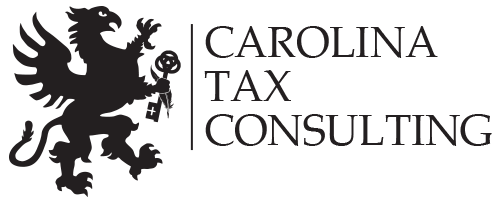Understanding Quarterly Taxes for Self-Employed Individuals

If you’re self-employed in Fort Mill, managing your taxes might feel like navigating uncharted territory. The concept of quarterly taxes often leaves many entrepreneurs scratching their heads. But don't worry—it’s simpler than it sounds once you know the basics!
What Are Quarterly Taxes and Who Needs to Pay Them?
Quarterly taxes are estimated payments made four times a year to the IRS and your state tax agency. These payments cover your income tax and self-employment tax, which includes Social Security and Medicare contributions.
If you’re a freelancer, contractor, or small business owner, the government expects you to pay taxes as you earn. Skipping quarterly payments—or underpaying—can result in penalties when you file your annual return.
Here’s a quick way to know if you should pay quarterly taxes:
- You expect to owe at least $1,000 in federal taxes this year.
- Taxes aren’t withheld from your income, like they are for employees.
- You earn income from multiple sources, such as freelance projects, rental properties, or a side hustle.
How to Calculate and Pay Quarterly Taxes
Figuring out how much to pay doesn’t have to be a guessing game. Here’s a step-by-step guide to help you calculate and submit your payments:
- Estimate Your Annual Income: Add up all sources of income you expect to earn this year.
- Subtract Deductions: This includes business expenses, home office costs, or mileage.
- Use the IRS Tax Brackets: Calculate how much income tax you’ll owe based on your estimated income. Don’t forget self-employment tax, which is 15.3% of your net income.
- Divide by Four: Split your total estimated taxes into four equal parts to cover each quarter.
You can submit payments online through the IRS Direct Pay system, by mailing a check with Form 1040-ES, or using an electronic payment app.
Why Staying Organized Is Key
Keeping up with quarterly taxes is much easier when your financial records are in order. Here are some practical tips to stay organized:
- Track Income and Expenses: Use accounting software or apps to log every dollar earned and spent.
- Set Aside Tax Funds: Transfer a portion of your income into a dedicated savings account to cover tax payments.
- Know the Deadlines: Quarterly taxes are due in April, June, September, and January of the following year. Mark your calendar or set reminders.
Good organization not only makes tax time easier but also reduces the risk of mistakes that could lead to penalties.
When to Seek Professional Help
For many self-employed individuals, navigating quarterly taxes can still feel overwhelming. That’s where experts come in. A Fort Mill tax consulting firm can simplify the process, ensure accuracy, and help you claim every deduction you’re entitled to.
Tax professionals also stay updated on ever-changing tax laws, so you don’t have to. Whether it’s calculating payments, filing forms, or handling unexpected situations like audits, tax filing consultants can save you time and stress.
Take Control of Your Quarterly Taxes
Understanding quarterly taxes is a critical part of managing your business and avoiding surprises at tax time. By staying organized and seeking expert advice when needed, you’ll gain confidence in handling your self-employed finances.
Ready to make tax season stress-free? Reach out to our team of trusted tax professionals in Fort Mill today and take the first step toward financial peace of mind!
Ready to work with Carolina Tax Consulting, LLC?
Let's connect! We’re here to help.
Send us a message and we’ll be in touch.
Or give us a call today at 803-410-5885











